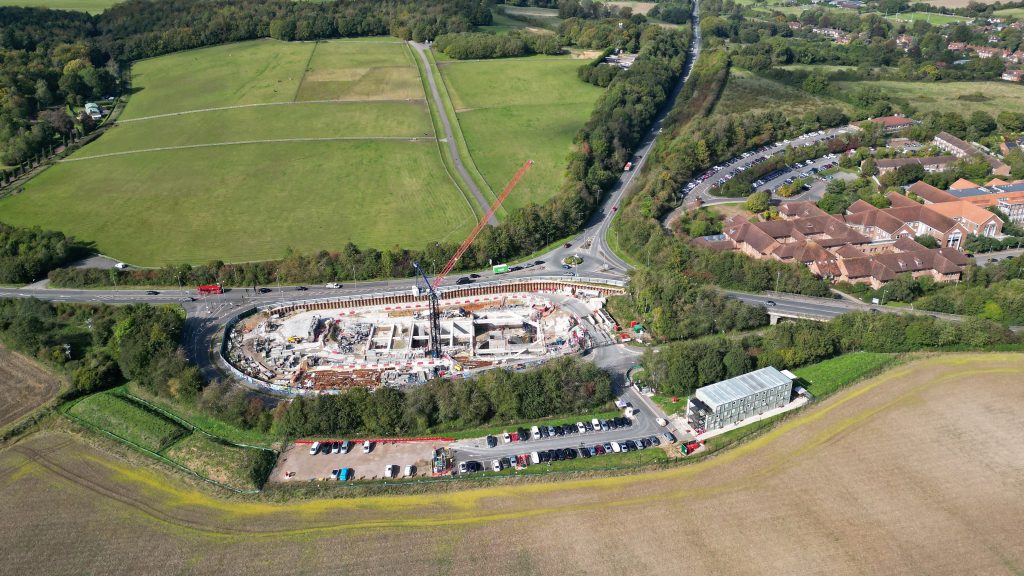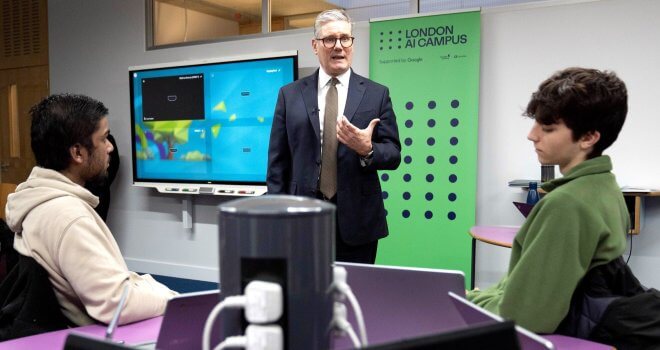What’s Happening To HS2, Britain’s Costly High-Speed Railway?

Britain is cancelling the construction of a key section of the costly HS2 high-speed railway, Prime Minister Rishi Sunak said on Wednesday, angering people and businesses in northern England, a region that would have benefited from the project.
Below is a detailed look at HS2, which has faced repeated cutbacks to its original route, and the alternate transport initiatives announced by Sunak.
WHICH PART OF HS2 HAS BEEN SCRAPPED?
The northern section of HS2 connecting Birmingham and Manchester has been cancelled, meaning the planned railway will only link London with Birmingham in central England.
The government says HS2 will cut the time for this journey to 49 minutes, making it 30 minutes faster than now.
Importantly, the line will start at Euston, in central London, rather than a new station to the west of the capital as some had speculated in recent weeks.
WHAT WILL REPLACE IT?
Sunak says the government will redirect HS2 funding to focus instead on “greater frequency and quality of transport infrastructure across the whole country”.
The government plans to use 36 billion pounds ($44 billion) to invest in hundreds of other railway, road and bus transport projects and another 12 billion pounds for faster connectivity between the northern English cities of Liverpool and Manchester.
WHAT IS HS2?
HS2, or High Speed 2, is a planned high-speed railway, billed as Europe’s largest infrastructure project.
It was originally expected to link London with the English cities to its north including Birmingham, Manchester and Leeds. The first trains are expected to start during 2029-2033.
THE RATIONALE FOR HS2
The project is designed to help modernise the rail network, slash travel times and help Britain catch up with other European nations that operate well-connected high-speed rail networks. Britain only has a small section connecting London with the rail tunnel to mainland Europe.
Over the years, it has been pitched as a way to reduce regional economic disparities.
Critics say Britain’s existing railways charge exorbitant fares, offer only irregular services and are dogged by delays due to years of underinvestment, while strikes by rail workers since last year have only added to the pressure in a country that gave the world the steam locomotive.
A 2012 government report said HS2 could deliver up to 60 billion pounds ($73 billion) of economic benefits, or 1.80-2.50 pounds of benefits for every pound spent in costs.
HOW MUCH DOES HS2 COST?
Its budget has repeatedly ballooned over the years, especially with inflation, and a 2020 estimate showed costs could rise to 106 billion pounds ($128.5 billion).
The government said on Wednesday every pound spent on HS2 was originally expected to deliver 2.30 pounds worth of benefits back to the taxpayer, but added recent forecasts had shown benefits could fall as low as 80 pence.
CUTBACKS AND STATUS
The Y-shaped railway was intended to link London with Birmingham and Manchester on one leg and Birmingham with Leeds on the other. The Leeds connection was ditched in 2021 on cost grounds.
Work on building the London-Birmingham stretch is currently under way, with machines boring tunnels through the earth, new bridges being built and tons of concrete being produced.
The government has bought hundreds of homes along the now cancelled route between Birmingham and Manchester and work has begun on a new viaduct in the centre of Birmingham.
WHY IS HS2 SO CONTENTIOUS?
Some groups consider HS2 as vital but critics have painted it as a vanity project that wastes taxpayers’ money, with some campaigning against it on environmental grounds.
Others have said its cutbacks mean the project’s goal of boosting regional prosperity is not being fulfilled.
WHICH COMPANIES ARE INVOLVED?
A state-funded public body called HS2 Ltd is responsible for implementing the project, with companies such as Kier, Balfour Beatty and Vinci involved.
A joint venture between Japan’s Hitachi and France’s Alstom will design and build the trains.
(Writing by Sachin Ravikumar; editing by Mark Heinrich and Alex Richardson)




